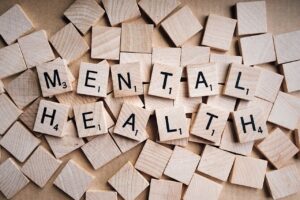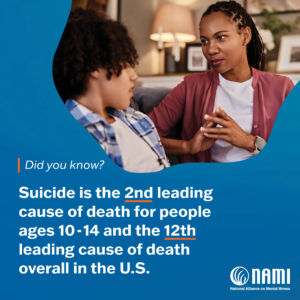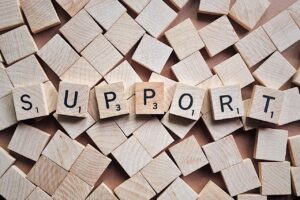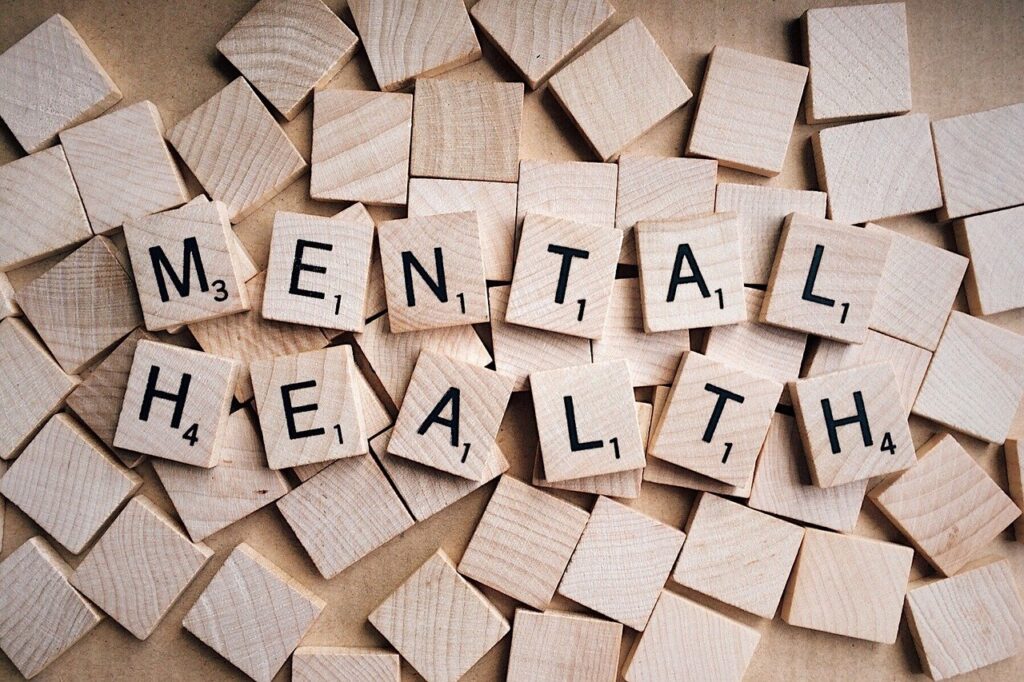Many people live with “invisible conditions” that cannot be seen. According to the CDC, invisible conditions affect an estimated 10% of the 61 million Americans with physical or mental ailments that limit their movements or senses.
September is Suicide Prevention Month. National Alliance on Mental Illness (NAMI) Their goal is to ensure that individuals, friends, and families have access to the resources they need to discuss suicide prevention and to seek help.
Invisible illnesses go beyond mental distress. A quarter of American adults have a condition that can be considered a disability, and only a fraction use visible supports such as a cane or wheelchair, meaning most don’t appear disabled, according to a 2021 paper in the AMA Journal of Ethics. Conditions that may fly under the radar include heart failure, cancer, diabetes, depression, dementia, chronic pain, nerve damage, lupus, digestive disorders, multiple sclerosis, chronic fatigue syndrome, fibromyalgia, or rheumatoid arthritis.

Pixabay.com
Resources from NAMI
- If you or someone you know is experiencing a mental health crisis, call or text 988 immediately.
- You can also chat with the Suicide & Crisis Lifeline at 988lifeline.org.
- Know the Warning Signs and Risk Factors of Suicide
- Being Prepared for a Crisis
- Read our guide, “Navigating a Mental Health Crisis”
- What You Need to Know About Youth Suicide

NAMI.org
988 Lifeline
The 988 Lifeline is available 24/7, 365 days a year. All conversations are free and confidential.
This is a suicide and crisis lifeline for you, your friends, and your loved ones. Whether you’re facing mental health struggles, emotional distress, alcohol or drug use concerns, or just need someone to talk to, our caring counselors are here for you. You are not alone.
Resources for Survivors of Suicide Loss
The Suicide Prevention Resource Center at the University of Oklahoma has compiled resources for survivors of suicide loss. I am listing them here.
After A Suicide Resource Directory: Coping with Grief, Trauma, and Distress
http://www.personalgriefcoach.net
This online directory links people who are grieving after a suicide death to resources and information.
Alliance of Hope for Suicide Survivors
http://www.allianceofhope.org
This organization for survivors of suicide loss provides information sheets, a blog, and a community forum through which survivors can share with each other.
Friends for Survival
http://www.friendsforsurvival.org
This organization is for suicide loss survivors and professionals who work with them. It produces a monthly newsletter and runs the Suicide Loss Helpline (1-800-646-7322). It also published Pathways to Purpose and Hope, a guide to building a community-based suicide survivor support program.
HEARTBEAT: Grief Support Following Suicide
http://heartbeatsurvivorsaftersuicide.org
This organization has chapters providing support groups for survivors of suicide loss in Colorado and some other states. Its website provides information sheets for survivors and a leader’s guide on how to start a new chapter of HEARTBEAT.
Parents of Suicides and Friends & Families of Suicides (POS-FFOS)
http://www.pos-ffos.com
This website provides a public message board called Suicide Grief Support Forum, a listserv for parents, a separate listserv for others, and an online chat room for survivors of suicide loss.
Tragedy Assistance Program for Survivors (TAPS)
https://www.taps.org/suicide
This organization provides resources and programs for people grieving the loss of a loved one who died while serving in the U.S. armed forces or as a result of their service. It has special resources and programs for suicide loss survivors.
United Survivors
https://unitesurvivors.org/
This organization is a place where people who have experienced suicide loss, suicide attempts, and suicidal thoughts and feelings, and their friends and families, can connect to use their lived experience to advocate for policy, systems, and cultural change.
The four national suicide prevention organizations below have special sections of their websites containing a wide variety of resources for suicide loss survivors.
American Association of Suicidology
https://www.suicidology.org/suicide-survivors/suicide-loss-survivors
American Foundation for Suicide Prevention
https://afsp.org/find-support/ive-lost-someone
988 Suicide & Crisis Lifeline
https://988lifeline.org/help-yourself/loss-survivors/
SAVE
https://save.org/what-we-do/grief-support/
https://save.org/find-help/coping-with-loss
What to do in an Emergency
Need Immediate Help In An Emergency?
If you or a loved one is in immediate danger calling 911 and talking with police may be necessary. It is important to notify the operator that it is a psychiatric emergency and ask for police officers trained in crisis intervention or trained to assist people experiencing a psychiatric emergency.
Need Immediate Help In A Crisis?
988 Suicide & Crisis Lifeline – Dial or text 988 if you or someone you know is having thoughts of suicide or experiencing a mental health crisis and get connected to a trained crisis counselor 24 hours a day, 7 days a week. Crisis counselors listen empathetically and without judgment. Your crisis counselor will work to ensure that you feel safe and help identify options and information about mental health services in your area.
988 is the new, shorter phone number that will make it easier for people to access mental health crisis services.
Crisis Text Line – Text HOME to 741-741
Connect with a trained crisis counselor to receive free, 24/7 crisis support via text message.
National Domestic Violence Hotline – Call 800-799-SAFE (7233)
Trained expert advocates are available 24/7 to provide confidential support to anyone experiencing domestic violence or seeking resources and information. Help is available in Spanish and other languages.
National Sexual Assault Hotline – Call 800-656-HOPE (4673)
Connect with a trained staff member from a sexual assault service provider in your area that offers access to a range of free services. Crisis chat support is available at Online Hotline. Free help, 24/7.
The Trevor Project – Call 866-488-7386 or Text START to 678-678
Supporting LGBTQ young people during times of crisis by providing access to crisis counselors 24/7, 365 days a year. Crisis chat support is available at Crisis Chat.

Image by WOKANDAPIX from Pixabay
Reach Out
My focus in contingency planning includes the practical details involved, resources to help you with industry sectors and professionals, and general resources to help you come through tough times. It’s important you know there is support for you, as this life throws curveballs along the way.
Reach out via Email or Message me if you have any questions. For additional information about my work check out @ The Living Planner or @ The Living Planner.
If you’re able to join the “Get Your $tuff Together” free workshop on October 1st at 10a, I’d love to see you and show you ways to organize your important documents. Here is the registration link: Tuesday, October 1st at 10 am PT/1 pm ET! Register HERE
Sharing a quote from an Anonymous author this week. “When someone you love becomes a memory, that memory becomes a treasure.” Take care of yourself this week, Lynn
#Can’tPredictCanPrepare #PlanfortheUnplanned

